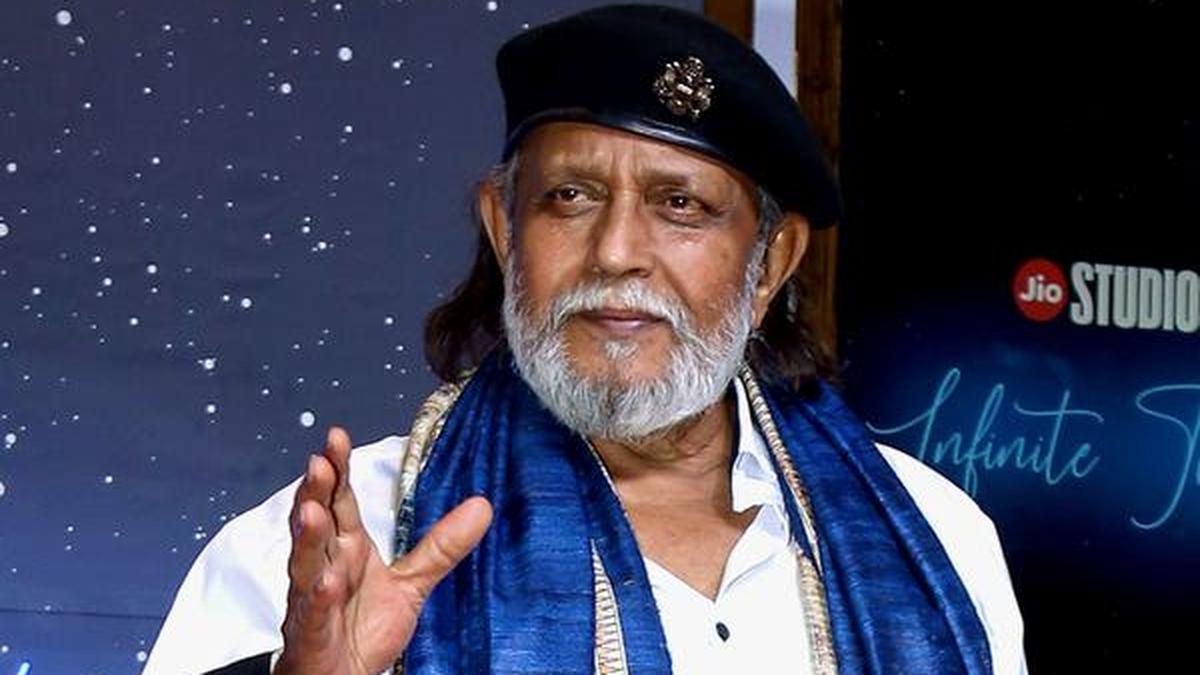
In the ever-evolving landscape of Indian cinema, where new stars emerge every Friday, one name has stood the test of time: Mithun Chakraborty. Announced as the recipient of the prestigious Dadasaheb Phalke Award on Monday, September 30, 2024, Chakraborty’s journey in the film industry is a tale of remarkable versatility and resilience. Over the decades, Mithun has effortlessly transitioned from arthouse cinema to mainstream commercial films, and even to projects that cater unabashedly to frontbenchers.
Chakraborty’s career launched with Mrinal Sen’s critically acclaimed film “Mrigayaa” in 1976. His performance earned him significant recognition, and he remains one of the very few actors to successfully navigate between the realms of arthouse and commercial cinema. Unlike his contemporaries—Naseeruddin Shah, Shabana Azmi, Om Puri, and Smita Patil—who tasted limited success in mainstream ventures after establishing themselves in parallel cinema, Mithun struck a fine balance. He demonstrated that one could indeed have a thriving career in both cinema worlds and enjoy substantial success in the process.
During his stint in parallel cinema, Mithun worked with noteworthy directors like Mrinal Sen, Buddhadeb Dasgupta, and Goutam Ghose, garnering three National Awards. Transitioning to mainstream cinema, he collaborated seamlessly with directors such as B. Subash, K.C. Bokadia, Manmohan Desai, and Parto Ghosh. The films Disco Dancer, Dance Dance, Pyar Jhukta Nahin, Ganga Jamunaa Saraswati, Agneepath, and Dalaal, among others, remain etched in the hearts of his fans. Particularly, Disco Dancer directed by B. Subash not only achieved a cult status in India but also carved out an international audience in the Soviet Union, Japan, and China. For a brief period in the mid-1980s, Mithun was arguably the most recognized Indian actor abroad.
. Even amidst the dominance of Salim-Javed’s ‘Angry Young Man’ persona epitomized by Amitabh Bachchan, Mithun’s Disco Dancer redefined box office success with its infectious music by Bappi Lahiri and captivating dance numbers.
In the late ’80s, Mithun even posed a challenge to Amitabh Bachchan for the numero uno position in Hindi cinema. This led Manmohan Desai to cast him in a substantial role in “Ganga Jamunaa Saraswati,” a rare occurrence as most heroes played second fiddle to Bachchan.
However, Mithun’s most enduring contribution to cinema is arguably his work in serious films. His performances in “Tahader Katha,” “Kaalpurush,” “Swami Vivekanand,” and “Gudiya” are still cherished. Through these films, he shattered the stereotype that an action hero from commercial Hindi films couldn’t master the subtleties of neorealism. His roles in these films, which earned him several National Awards, cemented his status in serious cinema and ensured that his appeal spanned both mainstream audiences and film festival circuits.
Despite his commercial and critical success, there exists another facet of Mithun’s career that is often overlooked. In the mid-1990s, he ventured into films specifically tailored for less discerning audiences. By shooting films in Ooty with a regular cast—featuring actors like Hemant Birje, Gautami, Deepti Bhatnagar, Kiran Kumar, and Raza Murad—with music by Dilip Sen-Sameer Sen, Mithun redefined cinema economics. These films, produced on a modest budget of around ₹40 lakh and completed within a month, were released without much fanfare in smaller centers. Although they were not well-known in metropolitan areas, films like “Jallad,” “Chandaal,” “Dada,” “Hitler,” “The Don,” and “Cheetah” earned significant profits and kept his hardcore fanbase in smaller towns satisfied.
Interestingly, while G.V. Iyer took an extensive 11 years to research for “Swami Vivekanand,” which starred Mithun, the actor had already completed over 20 films in the interim!
In recent years, Mithun has taken on supporting roles in films like “The Kashmir Files” and “The Tashkent Files.” These ventures, showcasing his versatility yet again, likely influenced the three-member jury—comprising former Dadasaheb Phalke awardee Asha Parekh, actor-politician Khushbu Sundar, and filmmaker Vipul Amrutlal Shah—to bestow upon him the highest honor in Indian cinema.
Published – October 01, 2024, 08:53 am IST
India
/Hindi cinema










